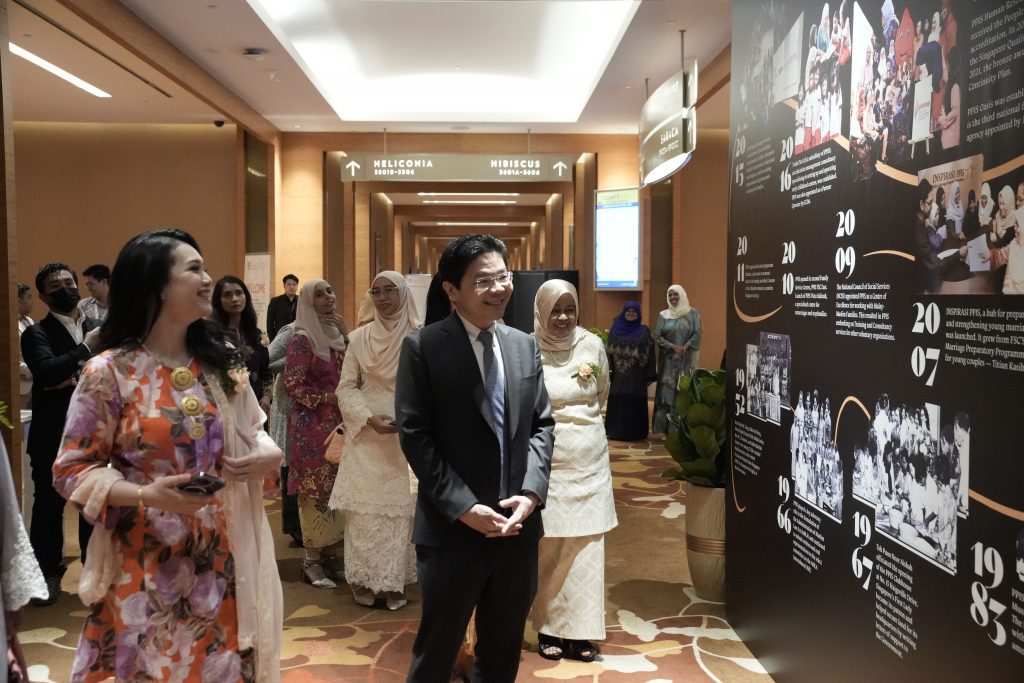Home > News & Media > New post-graduate scholarship for all women launched by two Malay/Muslim organisations
New post-graduate scholarship for all women launched by two Malay/Muslim organisations

This article was originally published by The Straits Times on 7 December, 2022.
SINGAPORE – A new $15,000 post-graduate scholarship for women was launched on Tuesday as part of efforts to further support women here to achieve their aspirations.
The scholarship, with a total sum of $150,000 co-funded by social service agency Singapore Muslim Women’s Association (PPIS) and bursary distribution organisation Lembaga Biasiswa Kenangan Maulud, will be given to one recipient a year for 10 years from 2023.
Applicants should be pursuing a full-time postgraduate programme either at the master or PhD level, though if done locally, a part-time programme would be allowed. They can pursue the following fields of study, among other relevant options: science, technology, engineering and mathematics (Stem); women’s studies; gerontology; geriatrics; and community work. Applications will open from June 2023.
Scholarship recipients will also be required to do a volunteering stint with PPIS.
Deputy Prime Minister Lawrence Wong, who announced the scholarship at the PPIS 70th anniversary gala dinner at Sands Expo and Convention Centre, noted that the scholarship covers traditionally male-dominated areas such as Stem. He said: “I hope that through these efforts, we can continue to grow the number of female role models for the Malay/Muslim community and we can truly show that there are no limits to what women can achieve here in Singapore.”
PPIS president Hazlina Abdul Halim said that a study published by the organisation earlier this year had found that among the top five personal aspirations of Muslim women here was the wish to further their education or upgrade their skills. “This post-graduate scholarship is for today’s women to realise their aspirations, so Singapore will be a better home for the women of tomorrow,” she said.
Mr Wong said the scholarship is an example of community efforts to advance the cause of women in Singapore. He noted that despite the significant advancement of women in Singapore, society is very much a work-in-progress as gender gaps still exist. For example, women still bear a disproportionate share of caregiving at home and also continue to face disadvantages at work, where they may be perceived as less capable, especially in more male-dominated industries. “All these can dissuade women from pursuing their passion or their career aspirations. So we can and must certainly do more,” said Mr Wong.
However, government efforts alone will not be enough as a key challenge is the persistence of deep-seated and entrenched gender stereotypes. Mr Wong called for men to do more to embrace their caregiving responsibilities, and not assume that women are somehow better suited to such roles. He also urged employers to develop family-friendly workplaces; and parents and teachers to encourage boys and girls to respect one another.
He said PPIS has played an integral role in empowering women and strengthening families in Singapore for the past 70 years. PPIS was started by 22 like-minded women volunteers in 1952, and has since grown to more than 110 active volunteers, 17 centres and 300 employees.
Mr Wong noted PPIS’ efforts in helping Muslim women cultivate financial and personal independence, and its advocacy for more legal protection for women in marriage and divorce, as well as the centres it operates to help families and children. He said: “Ultimately, to create a fairer and a more equal society, all of us – as individuals, community organisations, employers and the Government – will have to do our part. This is a collective and shared responsibility.”

